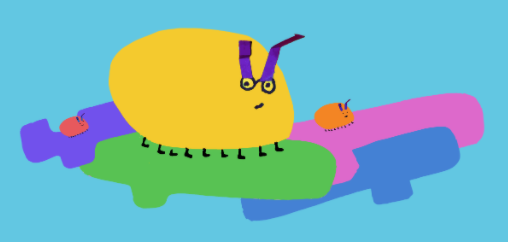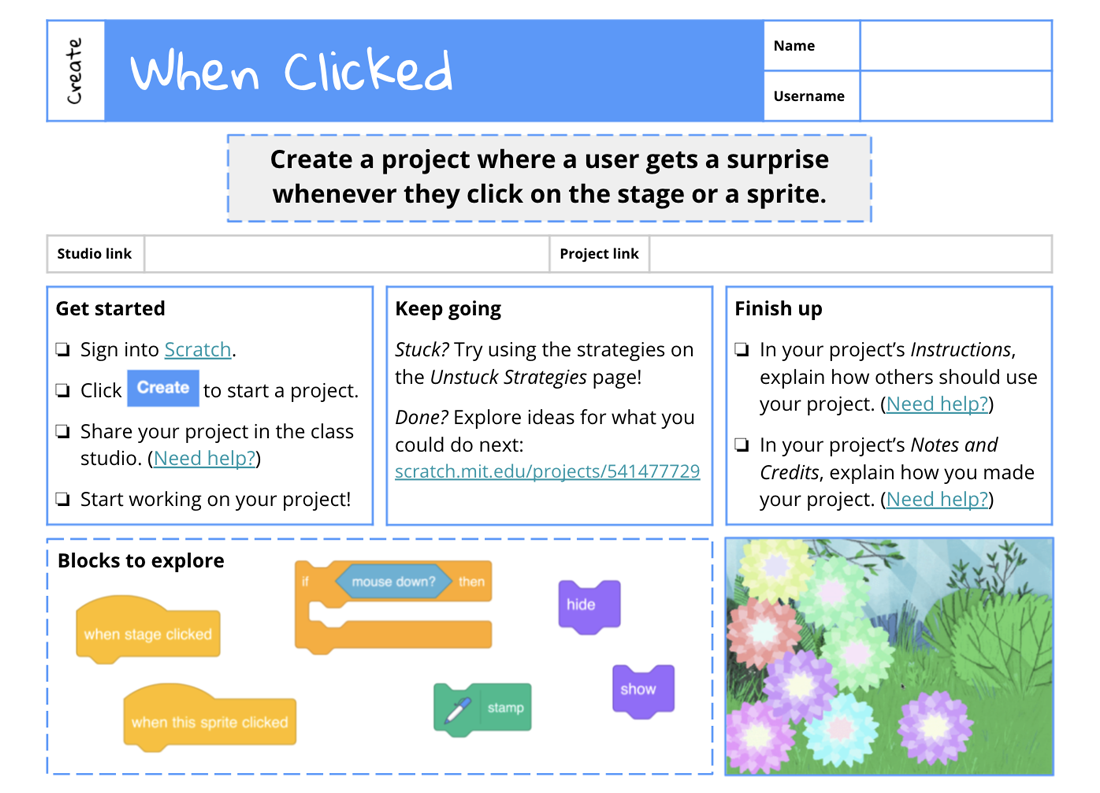Getting Unstuck
https://gettingunstuck.gse.harvard.edu/
K–12 introductory programming experiences are often highly scaffolded, and it can be challenging for teachers and learners to transition from these scaffolded experiences to learner-directed creative work, where learners are solving problems and fluently expressing ideas through code. In this project, we explore how to support teachers' and students' experiences with learner-directed projects through professional development and classroom curriculum.
As a professional learning experience, first hosted in 2018 and then again in 2020, Getting Unstuck emphasized three activities to support the development of conceptual and creative fluency with programming: creating, sharing, and reflecting. For creating, learners constructed a project in response to a programming prompt that emphasized a particular computational concept. For sharing, learners posted their projects online via the Scratch online community to receive feedback from others. For reflecting, learners responded to questions about their project-building process, with an emphasis on challenges and how they responded to those challenges. In collaboration with a wonderful group of classroom teachers, we have been exploring how to adapt the Getting Unstuck professional learning experience as an elementary classroom curriculum.
As of July 2021, Getting Unstuck is now available a 10-module intermediate Scratch curriculum to help students develop greater creative and conceptual fluency with code. The curriculum reimagines the classroom as a design studio: a culture of learning in which students explore, create, share, and reflect. You can find the curriculum on the Getting Unstuck website.
- Brennan, K. (2021). How kids manage self-directed programming projects: Strategies and structures. Journal of the Learning Sciences, 30(4–5), 576–610. https://doi.org/10.1080/10508406.2021.1936531
- Ding, K., Haduong, P., & Brennan, K. (2025). Learning collaboratively with Scratch. Proceedings of the 56th ACM Technical Symposium on Computer Science Education V. 2, 1753. https://dl.acm.org/doi/10.1145/3641555.3705039
- Haduong, P., & Brennan, K. (2024). "Creative, helpful, and collaborative": Exploring computing teachers' participation patterns in an online professional learning experience. Journal of Technology and Teacher Education, 32(4), 547–582. https://doi.org/10.70725/965173ydqupz
- Haduong, P., & Brennan, K. (2024). Getting unstuck together: Creating personally authentic programming projects in a 4th grade classroom. Computer Science Education, 35(2), 342–377. https://doi.org/10.1080/08993408.2024.2394284
- Haduong, P., & Brennan, K. (2019). Helping K–12 teachers get unstuck with Scratch: The design of an online professional learning experience. In E. K. Hawthorne, M. A. Pérez-Quiñones, S. Heckman & J. Zhang (Eds.), Proceedings of the 50th ACM Technical Symposium on Computer Science Education (SIGCSE’19) (pp. 1095–1101). https://doi.org/10.1145/3287324.3287479
- Kafai, Y. B., Biswas, G., Hutchins, N., Snyder, C., Brennan, K., Haduong, P., DesPortes, K., Fong, M., Flood, V. J., Walker-van Aalst, O., DeLiema, D., Fields, D. A., Gresalfi, M., Brady, C., Steinberg, S., Knowe, M., Franklin, D., Coenraad, M., Weintrop, D., Eatinger, D., Palmer, J., Wilkerson, M., Roberto, C., Bulalacao, & N. M., Danish, J. (2020). Turning bugs into learning opportunities: Understanding debugging approaches and pedagogies. In M. Gresalfi & I. S. Horn (Eds), Proceedings of The International Conference of the Learning Sciences (ICLS) 2020: Vol. 1 (pp. 374–381). https://repository.isls.org//handle/1/6661


